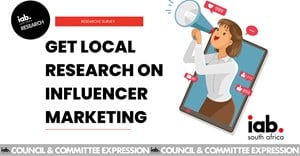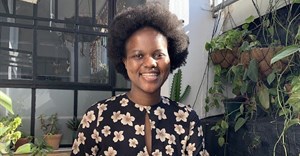Trending
Embedding tech into creativity: transforming marketing strategies for a digital future

These developments have revolutionised traditional marketing strategies and opened up new opportunities and challenges for brands and agencies.
Marketers: Rethinking their approach
More specifically, the emergence of these trends has led marketers to rethink their approach to the ways they create.
Nowhere was this more evident than at the IAB South Africa 2023 Bookmark Awards, in partnership with Accenture Song, held in Johannesburg on 27 July.
The awards ceremony and its Finalists’ Showcase, which I was privileged to host, highlighted the need for omnichannel strategies and exploration of new touchpoints as well as demonstrated the exciting prospects for brands, agencies and publishers to tap into niche audiences through established channels with loyal followings and credibility.
The impact of these digital trends has been especially pronounced for Accenture Song, the largest tech-powered creative group.
The convergence of creative execution, social and digital activation, content, and data-driven intelligence has allowed for broader audience reach and cost-effective campaigns. The ability to leverage data and analytics for decision-making has given marketers the power to optimise their efforts continually.
Personlisation
One significant advancement driven by data analytics and AI is personalisation.
Marketers can tailor content and marketing communications in real-time based on user interactions, making for more engaging and relevant experiences.
The integration of natural language processing has also enabled automated customer services, offering immediate and tailored responses to customer queries. Leveraging technology effectively is key to optimising marketing efforts.
Real potential is to augment creativity
While the majority of creatives I know have openly embraced these new technologies, AI and ML have sparked concern among some about being replaced.
Yet I believe the real potential lies in using these technologies to augment creativity. AI tools can assist marketers and their teams by generating ideas, automating repetitive tasks and providing historical data-based inspiration, thereby pushing the boundaries of creative work.
Instead of replacing marketers, AI and other technologies empower creatives to explore new avenues and make data-driven decisions. A test-and-learn approach, coupled with continuous optimisation based on AI insights, will ensure marketing strategies stay ahead of the curve.
The same principle can be applied to execution. For example, how do we leverage tools such as Adobe’s Firefly to enhance and roll out more assets that are already informed by data and predictability?
Gap between technologically-driven campaigns and traditional approaches
Another challenge often faced by agencies and even internal marketing teams is the gap between technologically-driven campaigns and the decision-makers inclination towards traditional approaches.
Bridging this divide requires education and showcasing the impact of innovative strategies on brand success.
It is the agency or marketer’s role to provide perspective on the next steps for the brand and how to evolve traditional thinking to views that embrace digital. The more we showcase the art of the possible and the impact it can have on a brand’s success, the easier this conversion becomes.
Ethical considerations
Despite the opportunities that technology integration brings, it also presents ethical considerations.
Bias and fairness in AI algorithms must be diligently monitored and addressed to ensure inclusive and fair creative endeavours.
Furthermore, finding the right balance between human creativity and technology-driven processes is crucial to preserving the emotional connection that defines impactful work.
While technology can enhance creativity, there is a large risk of overreliance, which could result in generic or cookie-cutter content that lacks soul, emotion and cultural relevance — the root of what makes our work special and meaningful.
Specifically, data visualisation plays a crucial role in modern creative practices. By telling data-driven stories with emotional impact, creatives can forge stronger connections with their audience and inspire action.
The future of creativity
Looking ahead, the future of creativity in marketing lies in addressing societal issues, telling impactful stories of change and doing good for its own sake.
While technological innovation excites, reimagining narratives and driving positive impact are essential differentiators in the marketing landscape.
Embracing personalisation, AI, and data-driven insights can optimise marketing efforts and engage audiences on a deeper level. AI and ML should be viewed as tools to enhance creativity rather than replace it, fostering exploration and pushing creative boundaries.
As technology becomes an integral part of creativity, it is vital to address ethical considerations and maintain the human touch in storytelling.
By combining innovation with impactful narratives, we can create a future where technology and creativity coexist harmoniously to bring about positive change in the digital marketing landscape.



















